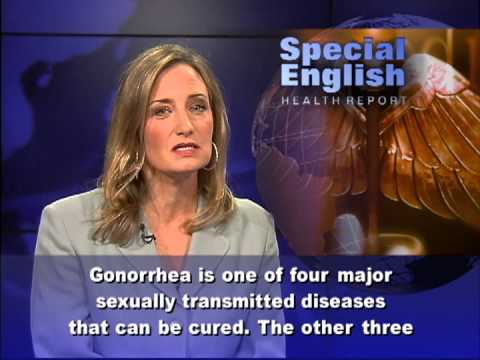Gonorrhea Getting Harder to Treat
 |
From VOA Learning English, this is the Health Report. Each year an estimated 106 million people get infected with gonorrhea. This sexually transmitted disease is getting harder and harder to treat. The World Health Organization says gonorrhea is increasingly resistant to antibiotics. The WHO warns that there are few treatment options available. The world, it says, is running out of ways to cure the disease. Manjula Lusti-Narasimhan is a scientist in the Department of Sexually Transmitted Diseases at the WHO. She says infected men and women of reproductive age could become infertile if gonorrhea becomes untreatable. This bacterial disease can also threaten the health of infected pregnant women and their unborn children. Gonorrhea is one of four major sexually transmitted diseases that can be cured. The other three are chlamydial infection, syphilis and chancroid. But the organism that causes gonorrhea has developed resistance to almost every class of antibiotic. Resistance is caused by the overuse and misuse of antibiotics and by the use of poor quality antibiotics. It also results from natural genetic changes, or mutations, within the organisms that cause diseases. The WHO says it does not have enough information to know the extent of gonorrhea resistance worldwide. But it says cases of resistance to treatment have been reported in Australia, France, Japan, Norway, Sweden and Britain. The WHO is calling for smarter use of antibiotics and more research into new ways to treat the infections. Dr. Lusti-Marasimhan says there is currently no research into new drug treatments for gonorrhea. For VOA Learning English, I'm Laurel Bowman. (Adapted from a radio program broadcast 12Mar2013)
|




